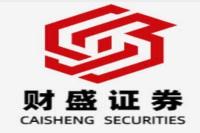China-Hong Kong Financial Cooperation: Strengthening Ties, Boosting Global Influence (SEO Meta Description: China, Hong Kong, financial cooperation, capital markets, interconnectivity, international financial center, regulatory collaboration, economic development)
Dive into the dynamic world of Sino-Hong Kong financial collaboration! This isn't just another dry news recap; it's a deep dive into the multifaceted relationship between mainland China and Hong Kong's financial sectors. We'll unravel the complexities of their intertwined economies, exploring the strategic implications of their burgeoning partnership for global finance. Forget bland summaries; prepare for a journey that unveils the human element behind the headlines, uncovering the ambitions, challenges, and triumphs shaping the future of this powerhouse duo. We'll analyze the recent meeting between the China Securities Regulatory Commission (CSRC) and the Hong Kong Monetary Authority (HKMA), examining not just the press release, but the unspoken signals and potential long-term consequences. Get ready to decipher the nuances of regulatory harmonization, the opportunities for investors, and the evolving role of Hong Kong as a global financial hub. This isn't just about numbers and policies; it's about the people driving innovation, navigating geopolitical currents, and building a future where East meets West in a sophisticated dance of financial synergy. Prepare to be captivated by the interwoven narratives of ambition, collaboration, and the unwavering pursuit of economic prosperity. We'll explore the potential pitfalls and triumphs, providing insights gleaned from years of experience in the field, ensuring you gain a truly comprehensive understanding of this pivotal relationship. Buckle up – it’s going to be a fascinating ride!
Deepening Mainland-Hong Kong Capital Market Interconnectivity
The December 17th, 2024 meeting between CSRC Chairman Wu Qing and HKMA Chief Executive Eddie Yue, representing the Hong Kong Bankers Association, marked another significant step in solidifying the already robust financial ties between mainland China and Hong Kong. While the official statements focused on "deepening capital market interconnectivity" and boosting Hong Kong's status as a global financial center, the underlying message is far richer and more nuanced. This wasn't just a polite exchange of pleasantries; it represented a strategic reinforcement of a vital economic partnership. Think of it as two highly skilled chess players making a carefully orchestrated move, anticipating countermoves and aiming for a decisive victory on the global economic stage.
The meeting's agenda touched upon several key areas, including:
- Enhanced Stock Connect Schemes: The existing Stock Connect programs, allowing cross-border trading, are likely to see further expansion, potentially encompassing a wider range of securities and investors. This could involve streamlining processes, reducing transaction costs, and creating a more seamless trading experience.
- Bond Market Integration: Greater integration of the mainland and Hong Kong bond markets is a crucial step. This will unlock vast pools of capital, increasing liquidity and diversification opportunities for investors on both sides. It also allows Chinese companies to tap into international capital markets more easily, fueling economic growth.
- Regulatory Harmonization: While maintaining their distinct regulatory frameworks, both sides are likely to pursue greater harmonization to minimize friction and ensure a level playing field. This delicate balancing act requires skillful negotiation and a shared commitment to maintaining market integrity.
This isn’t just about numbers; it’s about building trust and fostering a collaborative environment. The success of these initiatives hinges on clear communication, mutual respect, and a shared vision for the future. It's a marathon, not a sprint, and requires ongoing commitment from both sides.
Hong Kong: Gateway to Asia and Beyond
Hong Kong's role as a global financial center is paramount. Its strategic location, robust legal framework, and highly skilled workforce position it uniquely to serve as a bridge between mainland China and the rest of the world. The meeting underscored China's commitment to supporting Hong Kong in maintaining and enhancing this crucial position. This isn't just altruistic; it's a strategic imperative. A thriving Hong Kong benefits both economies, creating a virtuous cycle of growth and prosperity.
However, challenges remain. Geopolitical tensions and global economic uncertainty cast a shadow over the outlook. Navigating these headwinds will require adaptability, resilience, and a clear-sighted approach to risk management. Hong Kong’s success in the face of these challenges will demonstrate its enduring strength and adaptability to the changing global landscape.
The Human Element: Beyond the Headlines
The official statements provide only a glimpse into the complex dynamics at play. Behind the scenes, countless individuals – bankers, regulators, policymakers, and investors – are working tirelessly to make this vision a reality. Their dedication, expertise, and collaborative spirit are the driving forces behind the success of this vital partnership. It's their collective efforts that translate policy into tangible results, creating a more integrated and prosperous financial ecosystem. It's a testament to human ingenuity and the power of collaboration in overcoming seemingly insurmountable challenges.
Frequently Asked Questions (FAQs)
Q1: What are the key benefits of closer China-Hong Kong financial cooperation?
A1: Benefits are plentiful and include increased capital flows, enhanced market liquidity, reduced transaction costs, wider investment opportunities for both mainland and international investors, and strengthened economic growth for both regions. Ultimately, it fosters a more efficient and interconnected global financial system.
Q2: What are the potential risks associated with increased financial integration?
A2: Risks include potential regulatory arbitrage, heightened systemic risk (if one market experiences a crisis, it could spill over to the other), and challenges in harmonizing regulatory frameworks. Careful risk management and robust regulatory oversight are crucial in mitigating these issues.
Q3: How does this cooperation affect international investors?
A3: It opens up exciting new investment opportunities in one of the world's fastest-growing economies. However, it's important to understand the unique regulatory landscape and assess risks appropriately.
Q4: What role does technology play in this financial integration?
A4: Technology is absolutely critical. Fintech innovations are streamlining processes, enhancing efficiency, and improving the overall investor experience. Blockchain technology, for example, could play a significant role in enhancing security and transparency in cross-border transactions.
Q5: What are the long-term implications of this cooperation?
A5: The long-term implications are transformative. It could reshape the global financial landscape, cementing the position of both China and Hong Kong as major players in the international financial system. It will also likely spur further innovation and growth in the financial technology sector.
Q6: How can individuals benefit from this increased financial cooperation?
A6: Individuals can benefit through access to a wider range of investment products, potentially higher returns, and increased diversification opportunities. However, always conduct thorough research and seek professional financial advice before making any investment decisions.
Conclusion: A Symbiotic Relationship for Global Growth
The ongoing financial cooperation between mainland China and Hong Kong is a compelling example of a mutually beneficial relationship. It's a dynamic partnership that is constantly evolving, adapting to the ever-changing global economic landscape. While challenges undoubtedly exist, the potential rewards are immense, not just for both economies but for the global financial system as a whole. The December 2024 meeting serves as a clear signal of the commitment to deepening this vital relationship, paving the way for continued growth and prosperity in the years ahead. This isn't merely about numbers on a spreadsheet; it's about shaping a more interconnected and prosperous future for all.



